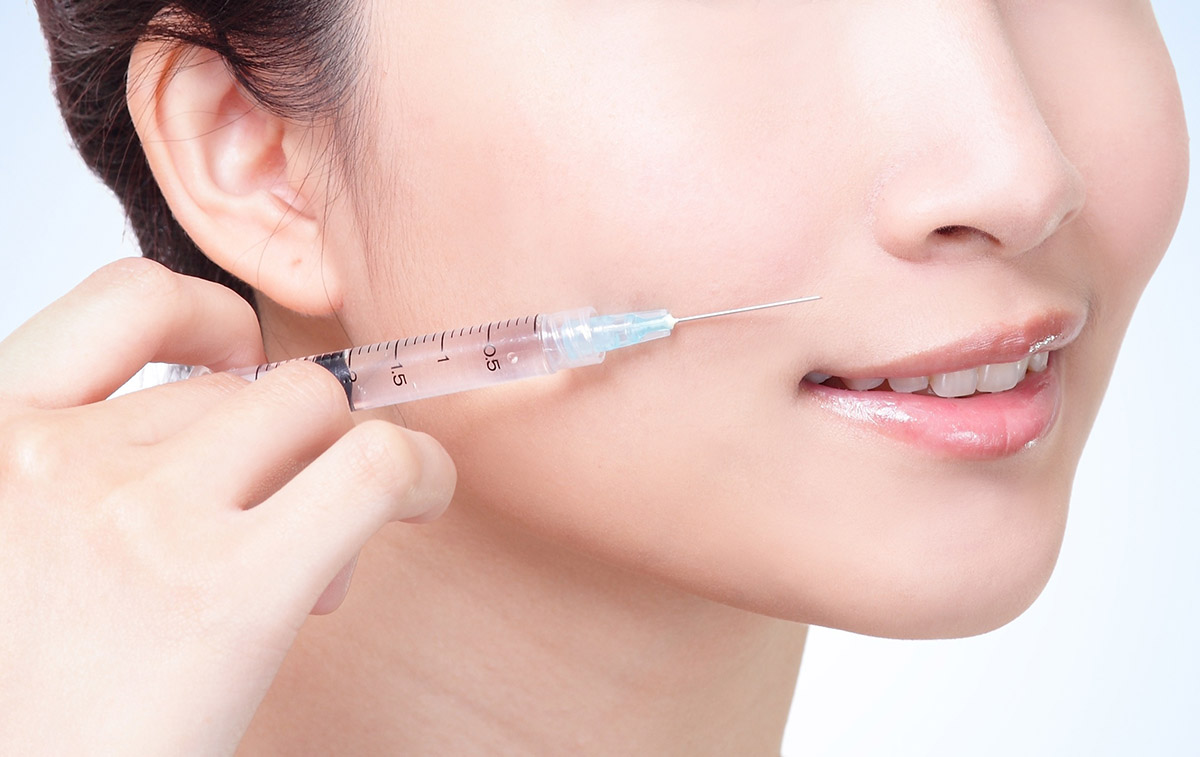 Botox®: Not Just for Improving Looks
Botox®: Not Just for Improving Looks
Ocoee Oral Surgery offers Botox® injections for patients with chronic TMJ (temporomandibular joint) disorders impacting the joints of the jaw and chewing muscles, as well myofascial pain syndrome, facial pain, excessive teeth grinding, and jaw clenching.
Symptoms of myofascial pain syndrome can be characterized by focal spot muscle tenderness, a taut band running the length of the muscle, pain in the muscle as a result of pressure or needling, and other less specific signs, such as regional weakness without atrophy and mild limitation of the range of movement.
Patients should make an appointment for a full evaluation before getting Botox® injections for TMJ because there are more noninvasive alternatives for treatment for abnormalities of jaw mobility that may be preferable, as they do not require the same frequency as Botox® shots.
Although it is most commonly associated with cosmetic purposes, the substance has a number of other clinical benefits, including the treatment of TMJ disorders. In this month’s blog, we’ll look at what Botox® is, various ways it is used, how long it lasts, possible side effects, and more.
“What is Botox®?”
The role of Botox® in Clinical treatment
Botulinum is a neurotoxic protein that prevents the release of neurotransmitters from nerve endings, resulting in a form of selective paralysis when injected. There are eight types of the toxin, type A-H. Types A and B are commercially used in medicine under the brand name Botox® and alternatives Dysport® and Xeomin® are to treat muscle spasms and diseases marked by overactivity of a muscle.
When injected, Botox® does not paralyze facial muscles as much as it keeps patients from making unintended facial grimaces and frowns. Most physicians will inject just enough to allow limited activity in the desired muscle group while not creating such a noticeable difference that the procedure is obvious. The patient of a cosmetic application should look more rested or happier, rather than unable to express themselves.
For those looking for cosmetic applications, getting a “before” picture to compare alongside an “after” photo allows you to see just how the injection makes a difference. Facial lines do not disappear as much as they look less apparent while the muscles are relaxed.
Botox® Injections for Migraines
The Food and Drug Administration approved intramuscular Botox® Injections for prophylactic treatment of chronic migraines in 2010. The toxin provides relief by inhibiting the release of neurotransmitters that signal to the brain that pain is occurring.
Other Clinical Uses for Botox®
Botox® offers a minimally invasive alternative to surgical treatments and, at other practices, can help those adjusting to new dentures, lip augmentation, and retraining facial muscle strength in orthodontic cases. Medical professionals also use Botox® to treat disorders related to hyperactive nerves, including neuropathic pain and some allergy symptoms. It may help those with excessive sweating. Patients suffering from muscle spasticity such as spasms of the head and neck, limbs, jaw, vocal cords, and other areas find relief as the injections result in the unclenching of muscles.
“What are Botox® injection side effects?”
Research and FDA Approval
It’s only natural to question whether Botox® is safe to use. After all, variant Type H Botulinum toxin is considered the deadliest substance in the world. But cosmetic applications of the toxin have been successfully used since at least 1989. Botox Cosmetic® received FDA-approval in 2002 following clinical trials.
Because serious side effects can happen, the toxin is generally only considered safe when used in a clinical setting like a plastic surgeon’s office or a dentist’s office where treatments can be administered and the results monitored. The FDA continues to study the long-term effects of these treatments.
Potential side effects of Botox® injection
Temporary unintended paralysis of the wrong muscles is the most often seen side effect, along with potential headaches, muscle weakness, flu-like symptoms, allergic reactions, and trouble swallowing. These side effects typically dissipate in a few weeks after treatment, the exact duration depending on the size of the dose injected. Preventable bruising at the injection site may also happen as a result of pressure being applied.
It is very important to only get injections from someone experienced in the procedure. Those allergic to eggs, for example, need to let their doctor or dentist know this. Botox® is also not recommended for those who are pregnant. Those who experience eyelid drooping after a procedure can find relief from an available medicine.
“How long do Botox® injections last?”
Noticing the Effects
Results should be apparent within three to 10 days after the procedure. The effects last up to three or four months per application with muscle activity returning to normal gradually. The effects really depend on the dosage and whether the liquid is full-strength or has been diluted. Supplemental applications of filler injections such as Restylane®, Perlane®, or Juvederm® can last up to a year, depending on the amount used.
Botox® Injection Cost
Prices can vary depending on various factors, and this is usually covered in the consulting phase of discussing procedures with physicians. Consult your regular dentist or contact Ocoee Oral Surgery for these details.
“Where can I find Botox® injections near me?”
Ocoee Oral Surgery offers this procedure and other solutions for myofascial pain in Cleveland TN and the surrounding area. We encourage you to research our credentials and read what past patients have said about our practice.
Learn More and Schedule a Consultation Today
There’s a lot of information on the web about Botox® injections that can aid patients in researching whether to get the procedure done. As a treatment for TMJ, patients need to arrange for the evaulation with Drs. McCord. As previously stated, this evaulation will include learning about other treatment options as well.
Contact us at Ocoee Oral Surgery for more information and solutions on clinical or cosmetic dentistry and Botox® in Cleveland TN and the surrounding area. To schedule a consultation, call us at 423-479-8544.
Copyright: ryanking999 / 123RF Stock Photo
